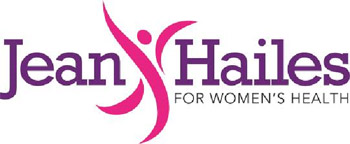Helping Women To Start Those 'Difficult' Conversations

Helping Women To Start Those -Difficult' Conversations
Did you know that around 1 in 5 women living in Australia experience sexual violence and 1 in 3 experience physical violence at some point in their lives? Did you also know that women from other cultures living in Australia experience violence at an even higher rate?
Women from all cultures sometimes need support to deal with difficult situations, including the pressures of raising a family in a new country, so Jean Hailes for Women's Health has partnered with InTouch Multicultural Centre against Family Violence to interview bilingual community workers and draw on their knowledge of what information is most needed by the women they work with.
The result is a practical and easy to understand resource that helps women to think about their physical and mental health in the context of family relationships and experiences settling into Australia.
How To Look After You is available in English and has been culturally translated into five different language groups – Indian (Punjabi), Arabic, Dari, Vietnamese and Chinese.
InTouch CEO Maya Avdibegovic says women from other cultures, now living in Australia, can be isolated and may have difficulty talking about their issues. 'Some may be newly arrived, without family support and dealing with the immediate stress of resettling with limited English, limited employment and housing opportunities, and no knowledge of the Australian culture and justice system," she says. 'Many come from countries that do not have legal, financial or emotional support systems like what is available in Australia and don't know that support systems exist here."
'These women are much more isolated and dependent, even on partners who are abusive, than other women," says Maya, 'and this makes them much more vulnerable to ongoing abuse. Many women stay silent because they don't want to bring shame to their families or community by admitting to not coping."
'We ask communities and workplaces to be active in helping women from all cultures to feel safe and comfortable," says Jean Hailes project manager Rhonda Garad, 'and by making our new brochures available you might just help one woman start a conversation, and find the support she needs to take action to make her life better,"
How To Look After You can be accessed online at healthforwomen.org.au.
Copies can be ordered for clinics, workplaces, clubs and groups who would like to support women in their community.
This project is funded by a grant from The Collie Foundation, managed by ANZ Trustees.
Published with the permission of Jean Hailes for Women's Health
1800 JEAN HAILES (532 642)
MORE
- Breast Augmentation Thailand
- Menstrual Period Management
- The Secret to Weight Loss
- Feeling The Pain: How To Tackle Period Pain
- Period Pain and How to Survive It
- Gender Specific Medicine
- Helping Women To Start Those 'Difficult'...
- Michelle Boyd Ellura Interview
- Menopause Does Not Protect Women From Cervical...
- Five Ways to Balance Hormones
- Do You Really Know What Is Going On Down There?
- Do You Know Your Breasts?
- Dr. Stan Goldstein Sexual Health Choices Interview
- Breast Health Decision Question and Answers
- Breast Cancer Treatment Impacts Patients' Sex...
- Bladder Weakness More Common Than Hay Fever
- Belinda Reynolds How To Manage UTI's Naturally...
- Treat Bones Like Breasts
- Mammogram Technology
- Soodox for Women
- Chlamydia Most Commonly Reported STI In Australia



